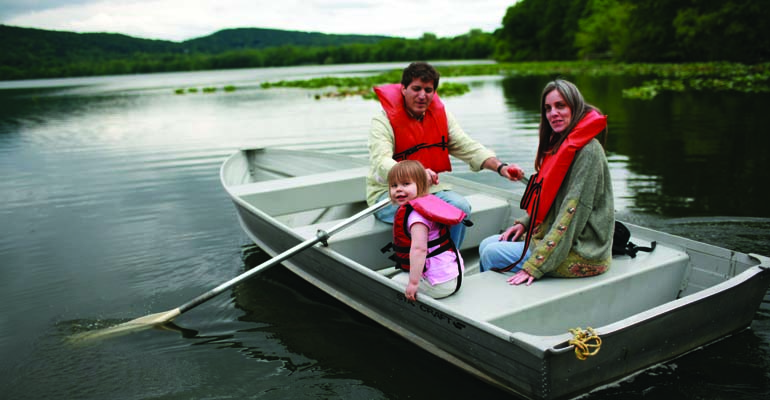Everyone said I would fall in love with my daughter the minute they laid her in my arms. She was beautiful, with her broad alabaster face and deep brown eyes. And she was a flirt: At six months she could flash a dimpled smile. I was awed by her perfect features as the orphanage worker pressed her to me and handed me a bottle. I took the bottle hesitantly and tipped it toward the baby’s pursed lips. How would I know when she was sated or whether she needed to burp? I felt as though someone had lent me an expensive camera I was afraid to fiddle with.
At the airport in Siberia, I held our baby on my lap. Suddenly I heard a pop, then an ooze of yellow diarrhea exploded from her diaper. I was horrified. Unable to stand the stench, I thrust her into my husband’s hands. Calmly, he changed her diaper and pulled out a clean snowsuit. How could I care for this baby, when my first instinct was to push her away?
Natural Order, Normal Mom?
I was 40 when we went to Russia, and in my second marriage. Becoming a parent was the next thing to do, a chore to tick off an errand list. When my husband and I couldn’t conceive, we tried non-invasive fertility treatments. When that failed, we moved on to adoption. I was secretly relieved, because I didn’t want aggressive fertility treatments. Maybe I was ambivalent about motherhood and didn’t know it.
During “the call” with our social worker, I heard “Siberia,” “passports,” and “arrange flight,” but all I could think about was my writing deadlines. No one threw me a baby shower. I didn’t read a single book on preparing for parenthood. Six months later, our daughter was in a makeshift nursery in our small apartment in New York City.
Pregnant women have time to arrange the spice rack. Nature slows them down. They come to their baby slowly, symbiotically. When we brought our baby home, she weighed 15 pounds. I had had neck and back injuries from sports, and I could barely carry her.
During the first year we were home, I fed her, changed her diapers, and sang to her, but I was numb. Ironically, I wasn’t suffering from sleep deprivation. Life at the orphanage had taught our baby to sleep 11 hours a night, in a bed by herself. But I had not had a chance to welcome the mother in me. I was not prepared to slow down, to be so needed. While my baby was squealing with delight at Elmo or crying because she was groggy, I slogged away at my computer in the next room, my teeth clenched, my stomach churning.
In the Absence of Knowledge
I had not given birth; my hormones were not awry. I knew I couldn’t attribute the feelings I was having to post-partum depression, but I was bluer than I’d ever been. I’d look down at my gorgeous child sitting on the floor, surrounded by blocks and toys, and feel a surge of guilt.
I thought I was damaged goods. Or maybe she was. Perhaps I was not bonding with her because she was not bonding with me. Psychologists say that some infants are so traumatized at birth that they develop a self-defense mechanism that makes them unable to trust adults. This made sense to me. When I tried to hold my daughter, she flexed in the opposite direction. Her instinct was to flee, not to cling. She would not look me in the eye. I didn’t know what to do. We were sinking.
During a recital on her last day of nursery school, I was shaken from my stupor. As I watched my daughter disrupt the concert, and her teacher take her aside to restrain her, I cried hard, for the first time. That evening, I went online and researched Reactive Attachment Disorder, the syndrome that prevents adoptees from attaching to their new parents. I saw descriptions of my child’s behavior and suggestions for bonding with and raising these children.
Over the next year, my husband and I focused on interrupting our daughter’s hard-wired defense system. We said things you’d never imagine saying to a child: “I know you are afraid for Mommy to love you. But I do love you.” We kept her close to us. I organized play dates. We met her fits and taunts with calm indifference. Sometimes we’d even laugh in the middle of a tantrum, and she’d stop and break into a giggle. Our united front threw her off her game.
Last year, my daughter and I began to find each other. She started to think about her behavior and its effects, rather than acting reflexively. She could reach for my hand without feeling inner ghosts.
Over time, we became a unit. We replaced distance and indifference with fierce emotions. I don’t worry if she tells me she hates me, because it shows we’re tied, finally, in the tumult of a mother-daughter relationship. I try not to be sad when I think back on our early days together. We needed time to trust primal love.



